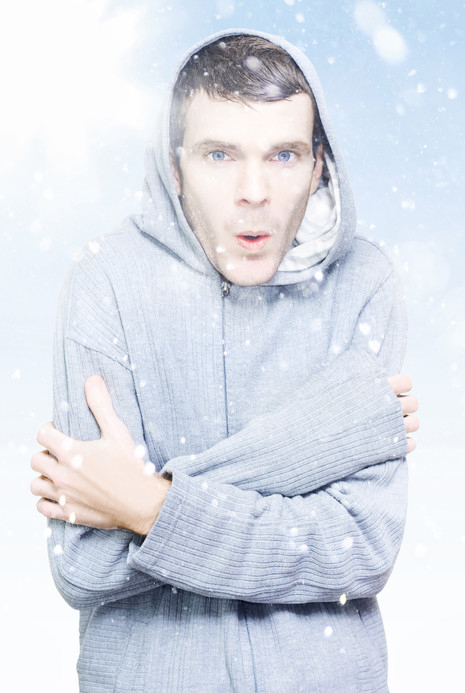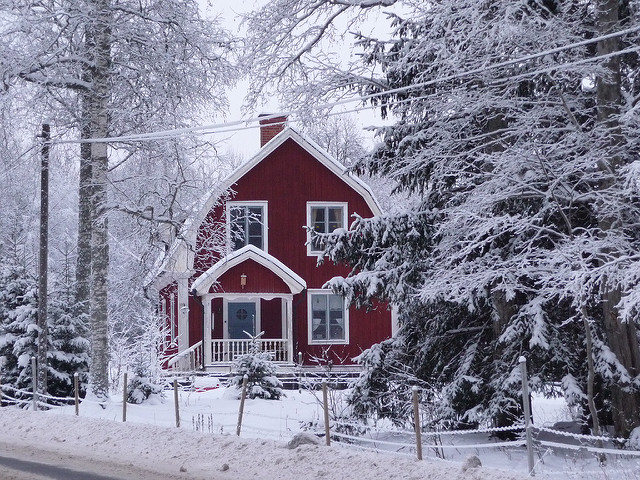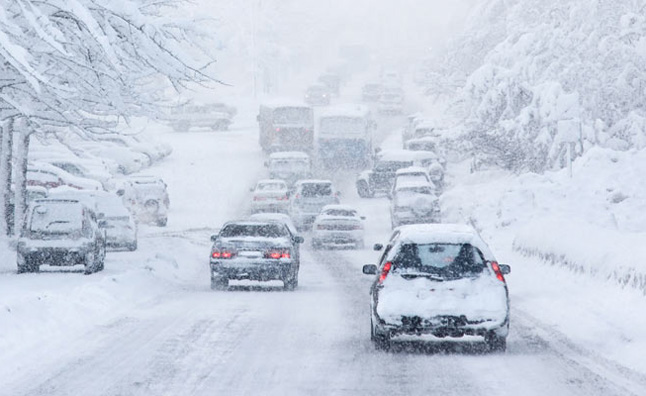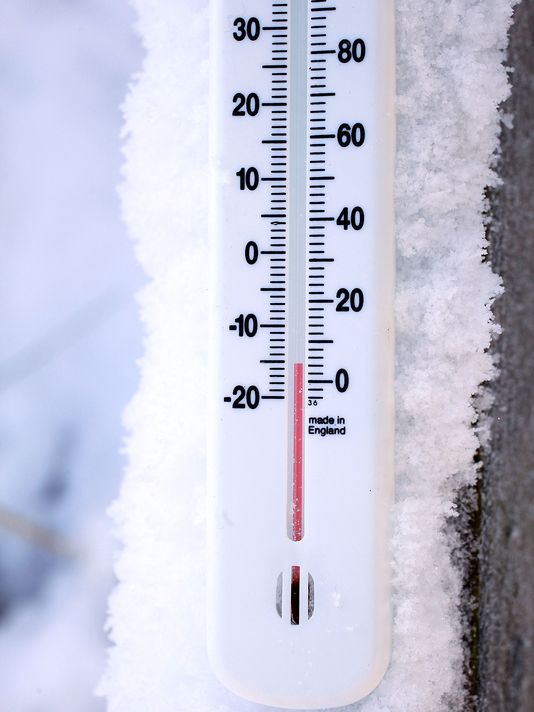When winter temperatures drop, staying warm and safe can be a challenge. Taking preventive measures is your best defense against the health hazards of extreme cold weather conditions. By being prepared, you can reduce the risk of weather-related health problems.
Exposure to cold temperatures can cause serious or life-threatening health problems. Infants and the elderly are particularly at risk, but anyone can be affected. To keep you and your family safe, you should know how to prevent cold-related health problems and what to do if a cold-weather health emergency arises.
Cold Weather Health Emergencies – Hypothermia and Frostbite
Serious health problems can result from prolonged exposure to the cold. The most common cold-related problems are hypothermia and frostbite.
Hypothermia (abnormally low body temperature) is caused when your body begins to lose heat faster than it can be  produced. Body temperature that is too low affects the brain, making the victim unable to think clearly or move well. Someone suffering from hypothermia may not realize it.
produced. Body temperature that is too low affects the brain, making the victim unable to think clearly or move well. Someone suffering from hypothermia may not realize it.
Warning signs of hypothermia in adults include shivering and exhaustion, confusion, memory loss and slurred speech, and drowsiness. Signs of hypothermia in infants include bright red, cold skin and very low energy. Always check on elderly family members and neighbors in extreme cold weather situations to ensure that they and their homes are adequately heated.
If you notice any signs of hypothermia in someone, seek medical attention immediately!
Frostbite is an injury to the body caused by freezing. Frostbite causes a loss of feeling and color in affected areas. It most often affects the nose, ears, cheeks, chin, fingers or toes. Frostbite can permanently damage the body, and severe cases can lead to amputation. A victim is often unaware of frostbite until someone points it out because the frozen tissues are numb.
The beginning stages of frostbite may include redness or pain in any skin area. Symptoms of frostbite include white or gray-ish yellow skin, skin that feels unusually firm or waxy, or numbness. If you detect frostbite, seek medical care.
Don’t forget about your pets in the winter, too. Remember, if it’s too cold for you, it’s probably too cold for your pets, so keep them inside during extremely cold weather.
Home Safety
 If you If you plan to use a fireplace or woodstove for emergency heating, have your chimney or flue inspected each year. Also, install smoke detectors and battery-operated carbon monoxide detectors and test them monthly.
If you If you plan to use a fireplace or woodstove for emergency heating, have your chimney or flue inspected each year. Also, install smoke detectors and battery-operated carbon monoxide detectors and test them monthly.
If you plan to use a space heater, do not place it within three feet of anything that may catch on fire, such as drapes, furniture, or bedding, and never cover your space heater. Never place a space heater on top of furniture or near water. Also, never leave children unattended near a space heater. Never use generators, grills, camp stoves or similar devices indoors because of the risk of carbon monoxide poisoning. If there is a power failure, use battery-powered flashlights or lanterns rather than candles.
Make sure to plan ahead in case of a power outage. Build a winter survival kit for your home.
Outdoor Safety
If you must go outdoors during extremely cold weather, a few tips can help you stay safe. Dress warmly and stay dry – wear  a hat, a scarf or knit mask to cover face and mouth; sleeves that are snug at the wrist; mittens (they are warmer than gloves); water-resistant coat and boots; and several layers of loose-fitting clothing. Stay dry – wet clothing chills the body rapidly. Excess perspiration will increase heat loss, so remove extra layers of clothing whenever you feel too warm. Do not ignore shivering – it’s an important first sign that the body is losing heat.
a hat, a scarf or knit mask to cover face and mouth; sleeves that are snug at the wrist; mittens (they are warmer than gloves); water-resistant coat and boots; and several layers of loose-fitting clothing. Stay dry – wet clothing chills the body rapidly. Excess perspiration will increase heat loss, so remove extra layers of clothing whenever you feel too warm. Do not ignore shivering – it’s an important first sign that the body is losing heat.
Avoid exertion – cold weather puts an extra strain on your heart. If you have heart disease or high blood pressure, follow your doctor’s advice about shoveling snow or working outdoors. If you must do outdoor activities, dress warmly, work slowly, do not use alcohol, and avoid caffeinated beverages. Remember, your body is already working hard just to stay warm, so don’t overdo it.
Winter Travel
 A few simple steps to plan ahead can prevent dangerous winter travel problems. Before winter arrives, have your vehicle’s radiator system serviced – check the antifreeze level in your car and add antifreeze as needed. Replace windshield wiper fluid with a wintertime mixture. Replace any worn tires, and check the air pressure in your tires. During winter, keep the gas tank near full to help avoid ice in the tank and fuel lines.
A few simple steps to plan ahead can prevent dangerous winter travel problems. Before winter arrives, have your vehicle’s radiator system serviced – check the antifreeze level in your car and add antifreeze as needed. Replace windshield wiper fluid with a wintertime mixture. Replace any worn tires, and check the air pressure in your tires. During winter, keep the gas tank near full to help avoid ice in the tank and fuel lines.
If you must travel during extremely cold weather conditions, always let someone know your destination and when you expect to arrive. Ask them to notify authorities if you are late. Prior to any road trips, make sure you have a winter survival kit for your car.
For more information about cold-weather safety and tips, visit Ready.gov.
